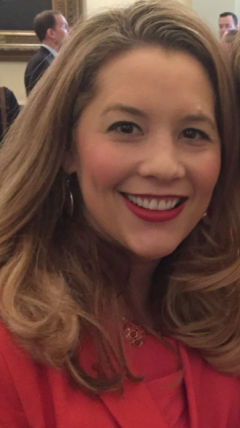Surveys and articles point out how Americans are cynical about politics and politicians and the double-dealing that goes on behind the scenes.
But do Georgians know that their own local dentist may have played a key role in the latest double cross at the state Capitol?

HB 684 would have improved access to preventive dental care for the state’s rural and underserved populations and was supported by the Georgia Council on Aging, nursing homes, non-profit health clinics and school-based health clinics.
The effort to enact HB 684 was led by the Georgia Dental Hygienists’ Association (GDHA) and the state’s 7,200 registered dental hygienists. The measure would have required no new funding and in fact had the potential to reduce the $47 million annual cost to Medicaid, Medicare and other payers for dental care emergencies.
HB 684 amounted to a simple statutory change, allowing dentists to authorize hygienists to perform preventive care services without the dentist present in more safety-net settings, such as nursing homes.
Hygienists have been performing these same services without a dentist present for 25 years in Georgia’s public health clinics and prisons. The use of hygienists in the additional settings is already permitted in 45 other states, for obvious reasons. There are more hygienists than dentists nationwide — nearly 30 percent more in Georgia — so hygienists can reach many more patients if the dentist who manages them is not always required to be present.
The urgency is acute in Georgia, which ranks 49th in the nation in the number of dentists per person. Sixteen counties don’t have a dentist, and 118 of Georgia’s 159 counties are classified by the Georgia Department of Community Health as dental care shortage areas. HB 684 did not diminish dentists’ authority over hygienists’ work and left it to the sole discretion of each dentist whether to implement the changes or ignore them.
So who could oppose such a common-sense, socially and fiscally responsible health care initiative?
The only opposition came from the Georgia Dental Association (GDA), which had opposed all such efforts in previous years. However, this year, things seemed to be changing. With committed legislative support from sponsor Rep. Chuck Martin (R-Alpharetta), House Health Committee Chair Sharon Cooper (R-Marietta), Senate Health Committee Chair Renee Unterman (R-Buford) and Sen. Valencia Seay (D-Riverdale), even the GDA found it difficult to retain this posture.
Over the course of several weeks, amendments proposed by the GDA were written into the legislation. On Feb. 17, the GDA’s executive director proclaimed publicly at a House Health Committee meeting that the organization agreed with the bill and its intent. The committee approved the bill unanimously, setting up what usually would be a perfunctory Rules Committee vote to send the bill to the full House for a vote on the floor.

But the GDA, in a move that had Capitol veterans scratching their heads, alerted dentists to phone members of the Rules Committee and urge them to kill HB 684. Evidently the group didn’t want any bill to pass, no matter how much the sponsor incorporated the group’s suggestions.
Your local dentist probably didn’t read the multi-page legislation. He or she relied on the GDA to determine whether the bill should be opposed. In any case, many dentists acted on the alerts and contacted their legislators, and the legislators listened.
Hygienists across the state had been contacting legislators also. But guess which group — dentists or hygienists — gives more money in campaign contributions?
The GDA’s last-minute legislative betrayal succeeded. HB 684 is dead for 2016. But the GDHA and the state’s hygienists will be back next year at the General Assembly, continuing their effort to improve preventive dental care for all Georgians. Will your dentist stand in their way?
Kathy Floyd is executive director of the Georgia Council on Aging. Misty Mattingly is the president of the Georgia Dental Hygienists’ Association.

